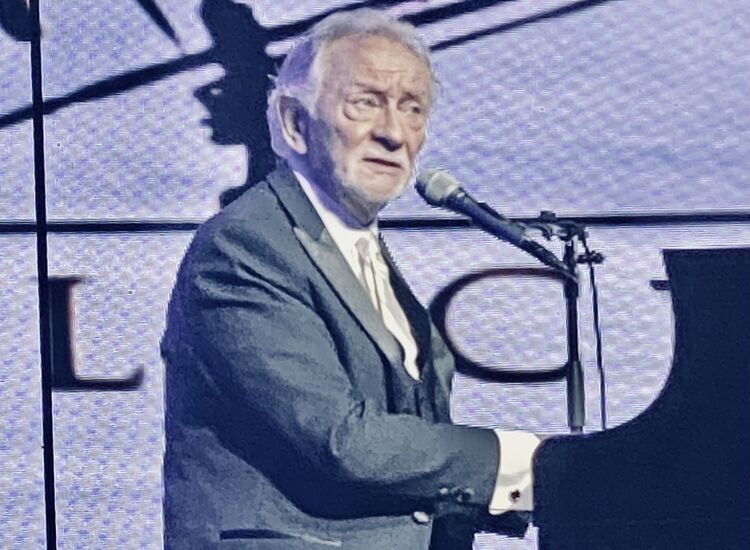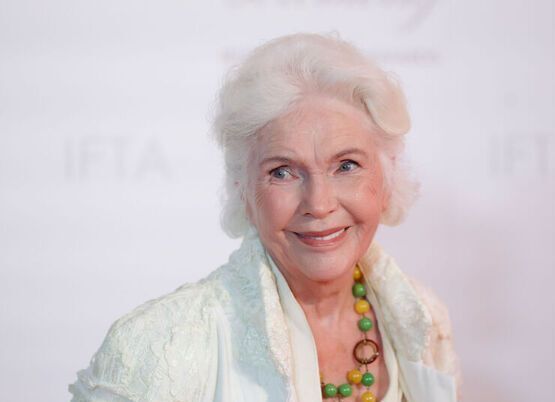A sign helping with social distancing in St. Stephen’s Green in central Dublin on March 24. ROLLING NEWS/LEAH FARRELL
By Colleen Taylor
“In the time of the pandemic” has already become a tired refrain. But painful awareness of the frightening here-and-now—every moment enslaved to Covid-19’s grip—is inescapable. This column, therefore, has no choice but to ask: what happens to Irish music in the time of the pandemic? More pressingly, what happens to a genre that relies on the festival circuit—on tours, crowds, and ticket sales—when that very thing, a crowd, becomes society’s biggest threat?
In nearly seven years of writing this column, the previous paragraph is without contest my most depressing introduction to date. But again, inevitable. In Dublin and Belfast, where I have spent the last couple weeks of lockdown, the atmosphere has been hushed, eerie, and empty in spirit and physical presence. Businesses are closed, people are wary, less inclined to offer a friendly hello. Things are, in short, decidedly un-Irish. That, combined with harrowing news from home in America, has left me, like everyone else on the planet, feeling alone.
But last night in Belfast, the 26th of March, something extraordinary happened. People made music and rhythm from their respective homes—physically apart yet spiritually together, responding as a unit. At 8 p.m., everyone stood at their doors and clapped for the National Health Service, for the brave frontline workers—the nurses and doctors and caretakers. The applause and cheers, harmonizing from distant houses, became literal music to my ears. That applause enacted the thing we have been missing: the crowd, a society joined together in common appreciation. Perhaps that kind of union has been absent for much longer than before coronavirus lockdown.

Frank Sinatra, left, on the Armed Forces Radio in 1944 with Dinah Shore and Bing Crosby, on the right.
My grandparents were about my age during World War II. One of my favorite photos of my grandfather pictures him with some members of his platoon in an American camp in Japan, cheekily smiling under a makeshift banner that reads “Irish Tent.” My love for my grandparents and my awestruck respect for their strength and endurance during that era made me fascinated with their lives and their moment in history.
The warlike language surrounding our current global health crisis is problematic, but nevertheless I cannot stop thinking about my grandparents and their lives in the 1940s. Specifically, I can’t help but remember one memory my grandmother left me with: the night of Pearl Harbor, and for the months and years after that, she and her sisters gathered together in a Brooklyn apartment and listened to music—to Frank Sinatra or Bing Crosby. That togetherness in the music gave them the resolve to carry on, to resist despondency.
[caption id="attachment_106805" align="alignnone" width="300"]
So what happens to Irish music in the time of the pandemic? It carries on. It resists despondency. The Irish, after all, are known for turning tragedy into humor, grit, and yes, success—economic and cultural. History has proven as much. What better outlet than Irish music to offer reprieve from gloom?
Over the past two weeks, bands have had to cancel their St. Patrick’s Day and springtime tours—the busiest and most profitable season for Irish music. But they have acted fast—rallying fans with promises of 2021 tours and even more importantly, delivering their music virtually via Facebook uploads. Some bands have gone the extra mile with this. Dropkick Murphys delivered their traditional St. Patrick’s Day concert on livestream and announced that their foundation, Claddagh Stream, would be helping families affected by coronavirus. The full concert is still available on YouTube.
The lockdown is inspiring more amateur musicians as well: a #Quarantunes challenge is trending on Facebook, inviting musicians to upload music on a daily basis. Those who have had to cancel tours have tried to mitigate financial challenges by asking fans for support where they can give it, establishing paypal and venmo contribution pages.
Some bands have impressed me by not only providing music but providing mental health support as well. We Banjo 3, for instance—long time advocates of mental health awareness—have scheduled daily conversations and check-ins with their fans. Each individual member of the band takes a day of the week to hold a virtual meeting and discuss the current changes, read a book, have a coffee, and of course, play some music for a virtual audience.
Similarly, Kate Rusby penned a heartwarming letter for her fans, a desperately needed dose of optimism. “A few years ago,” Rusby wrote, “I made an album called ‘Make the Light.’ The title came from the saying ‘I can see the light at the end of the tunnel’ and the fact that sometimes we have to make our own light, something lovely and precious to aim for. My light at the moment is the hug I’m going to give my mum and dad when it is safe to do so…Make some light, aim for it, it’s going to be euphoric when we all get there.”
As Rusby’s wise words and the online efforts of so many Irish bands evince, music can inspire and motivate us during challenging times—as it has always done in Irish history and culture, from the time of the bards to now. Furthermore, with so many great musicians cooped up at home, there is ample time for them to write and compose. One light at the end of the tunnel we might focus on then, as listeners, is the renaissance of Irish music that will emerge in six months.
In the meantime, we can listen online, support our local businesses and musicians, find reprieve from the despondency, and make our own lights to the sound of good music. Most importantly, we can clap, as a distanced, global crowd, for all our heroic health care workers. Right now, and always, they are the real stars.








